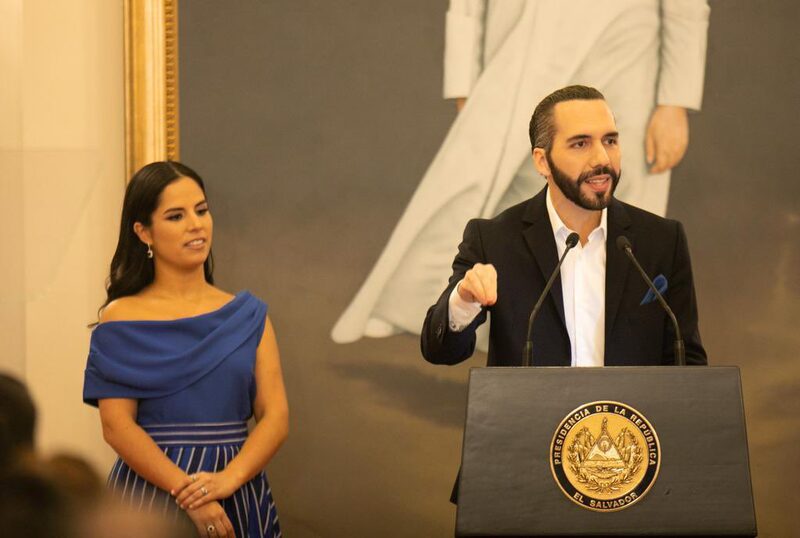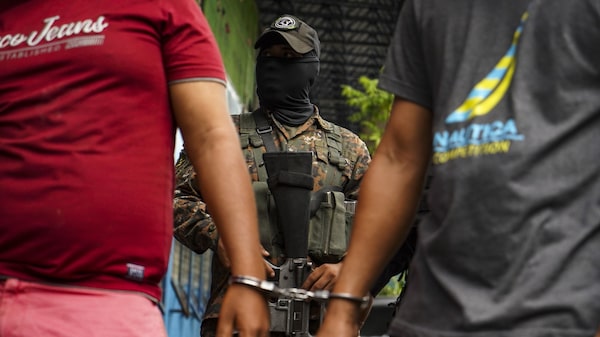San Salvador — El Salvador’s President Nayib Bukele has announced that he will seek reelection in February 2024, in a decision that defies the country’s Constitution, which prohibits two consecutive terms.
Bukele made the announcement in a televised speech on the occasion of Independence Day on Thursday night.
“I have decided to run as a candidate for the presidency so that we can continue this path we have started, the path that for the first time in our history has proven to be the right one,” Bukele said.
The president said that the emergency regime that has been in place since March 27 to combat gangs is bringing results and enjoys popular acceptance, although El Salvador has been criticized internationally for human rights violations.
“We already tried a path for 200 years and the results could not have been worse, for many who lost their families it was the worst hell. The only path El Salvador has is this one, it is not a campaign promise, we have already tried it, it is working for us, and we are not going to abandon it,” Bukele said in Thursday’s televised address.
Article 152 of the Salvadoran Constitution prohibits presidents from standing as election candidates having served as president in the prior period for more than six months.
“The presidential period shall be of five years and shall begin and end on the first day of June, without the person who has exercised the presidency being able to continue in office for even one day longer,” article 154 states.
Moreover, article 75 punishes “those who subscribe acts, proclamations or adhesions to promote or support the reelection or the continuation of the President of the Republic, or employ direct means aimed at that end”, with a punishment of loss of citizenship rights.
Speaking of the laws, Bukele said that, out of 39 developed countries thus categorized by the International Monetary Fund, all allow presidential reelection with the exception of South Korea, while some maintain hereditary monarchies.
“Surely more than one developed country will not agree with this decision, but they are not the ones who will decide, but the Salvadoran people,” Bukele said.
A loophole in the rules
However, despite the constitutional prohibition of standing for a second term, the country’s constitutional court has left the door open to reelection following a resolution in September last year ruling that an incumbent president can opt to resign six months before the elections and then stand for election.
The Supreme Electoral Tribunal stated at the time that it will register the President of the Republic if he wishes to run, in compliance with the court’s resolution, as such rulings are “unappealable and of mandatory compliance”.
The US embassy in El Salvador pointed out in September 2021 that the ruling of the
Constitutional Court undermines Salvadoran democracy for two reasons: first, because it contravenes the Constitution; and second, because the Bukele administration has taken over the judiciary by appointing “its own judges”.
“This deterioration of democratic governance damages the relationship that the United States strives to maintain with the government of El Salvador, and further erodes the international image of El Salvador as a democratic and reliable partner in the region,” the US embassy stated.
According to the embassy’s analysis, the Legislative Assembly unconstitutionally modified the judiciary laws and ordered the retirement of magistrates over 60 years of age or with more than 30 years of service, with the argument of eradicating corruption.
“Age or time of service have no direct relation with corruption,” the US embassy in El Salvador stated.
As a result, the vacancies were filled by “substitutes loyal to the president,” the embassy said.
Following the ruling allowing reelection, the US State Department added the five newly appointed magistrates to the so-called Engel List, a list of individuals who have knowingly engaged in acts that threaten democratic processes or institutions, engaged in significant corruption, or obstructed investigations of such acts of corruption in Guatemala, Honduras, and El Salvador.
The judges are Óscar Alberto López Jerez, Elsy Dueñas Lovos, José Ángel Pérez Chacón, Luis Javier Suárez Magaña and Héctor Nahún Martínez.
Also on Thursday, the day Bukele made public his plan to run for reelection, Fitch Ratings downgraded El Salvador’s credit rating, from CCC to CC.





